Are you looking for the easiest way to run opBNB RPC nodes? If so, you’ve come to the right place. In this guide, we’ll show you how to set up an opBNB node for free using Moralis—the industry’s #1 node provider. With our intuitive user interface, you can set up nodes for 30+ chains with just a click. Are you eager to learn how this works? Check out our brief breakdown of the entire process here:
- Step 1: Sign up for free with Moralis.
- Step 2: Log in, navigate to the “Nodes” tab, and click the “+ Create Node” button:
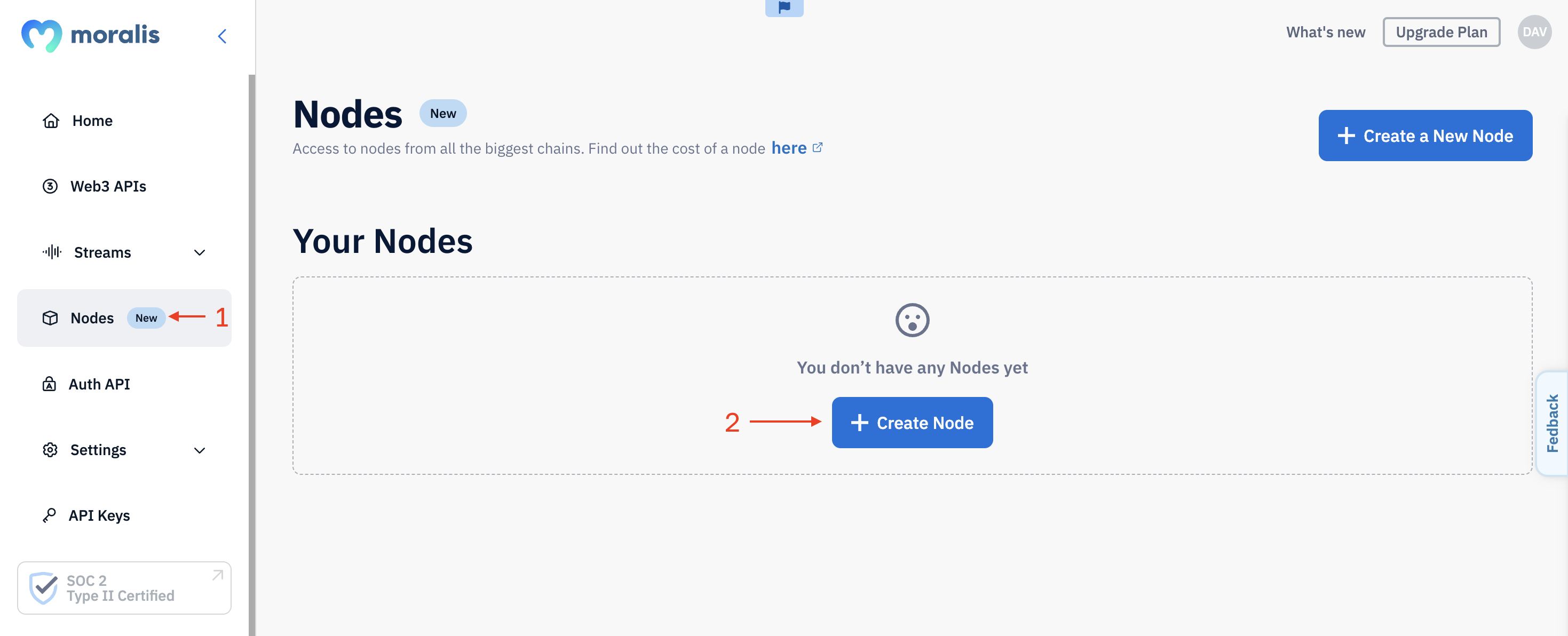
- Step 3: Select “opBNB”, followed by “Mainnet”, and hit “Create Node”:
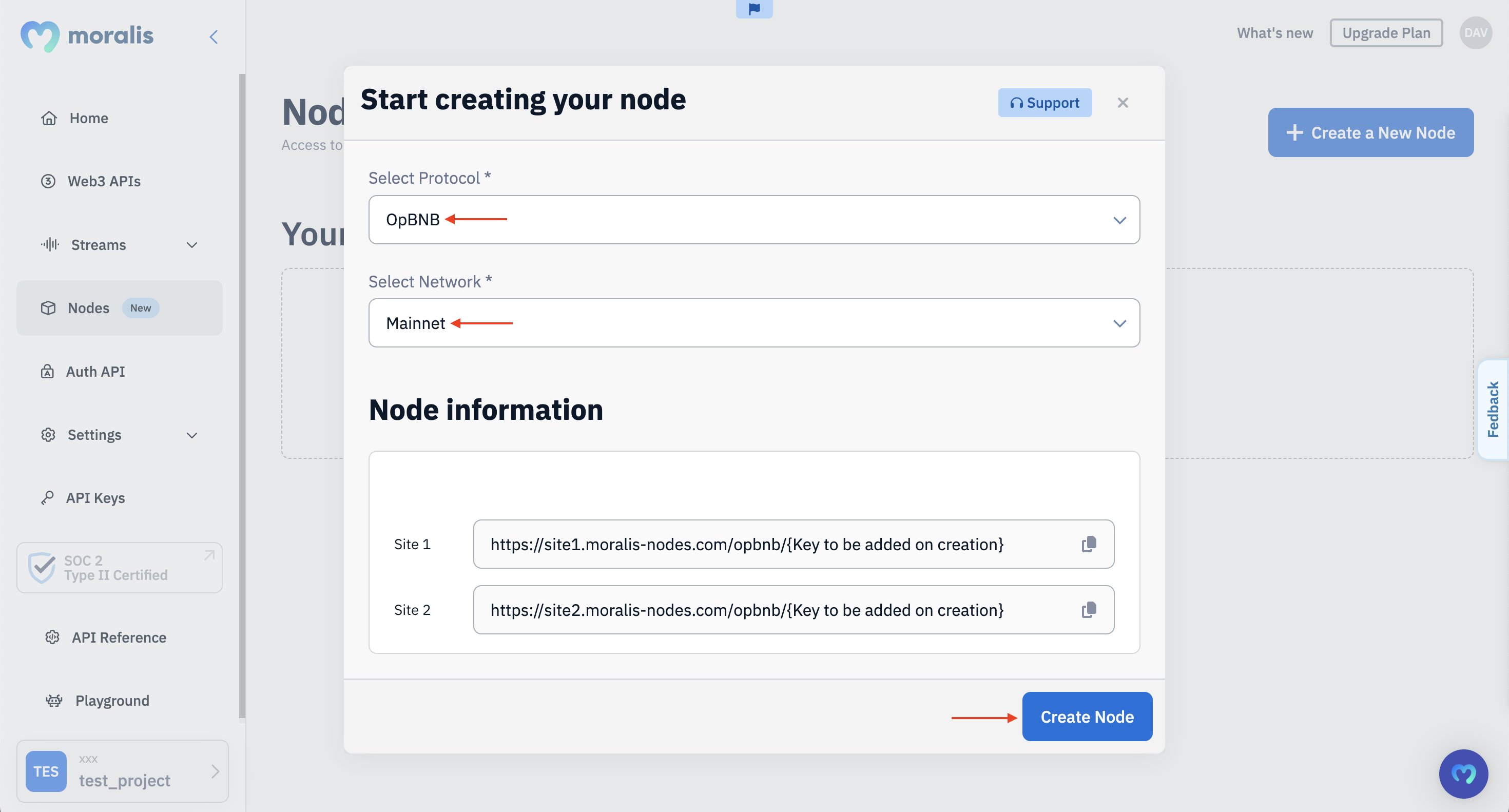
In return, you’ll get two opBNB RPC node URLs you can copy and integrate into your projects to interact with the network:
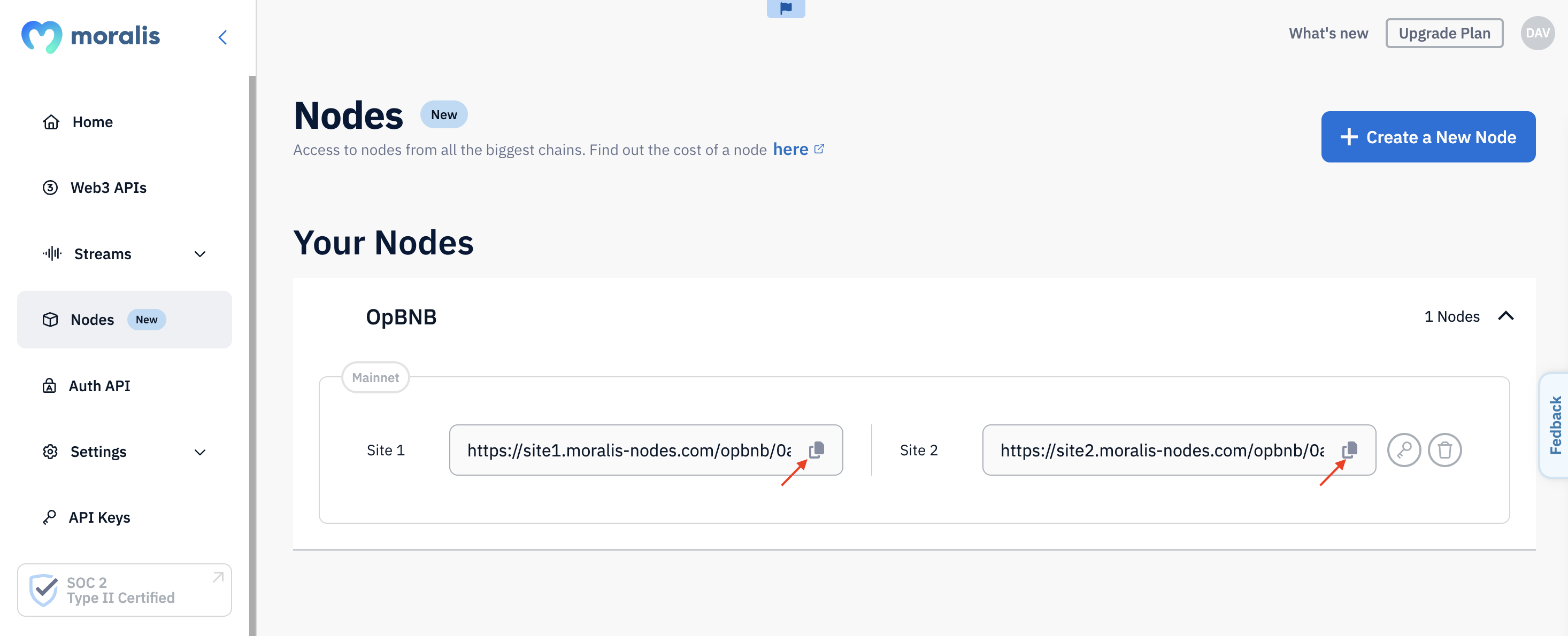
That’s it! Setting up opBNB nodes is easy with Moralis. If you want a more in-depth walkthrough of the steps above, more information about the opBNB network, and a tutorial on how to call RPC nodes, keep reading, as we’ll lay it all out for you.
Ready to set up your own opBNB RPC node? If so, take this opportunity to sign up with Moralis for free. Doing so will give you immediate access to our industry-leading node service and other development tools!
Overview
Are you thinking about setting up your own opBNB RPC nodes? If so, you might want to reconsider. Running an opBNB node from scratch requires a complex infrastructure with substantial computational power, ample storage, and significant bandwidth. Managing this on your own can be both time- and resource-intensive. But there is a better way. You can now streamline the process with Moralis—the industry’s #1 node provider.

At Moralis, we handle all the complexities of running blockchain nodes for you, and we support over 30 blockchain networks. As such, with our intuitive point-and-click interface, you can set up your own opBNB RPC node effortlessly. Want to know how this works? This is the read for you. Let’s dive in!
What is opBNB?
OpBNB is a layer-2 (L2) scaling solution for BNB Smart Chain (BSC). It enhances BSC by offloading transaction processing and resource usage while still posting data on the mainnet. This results in higher throughput and lower transaction fees, benefiting both developers and end users alike.
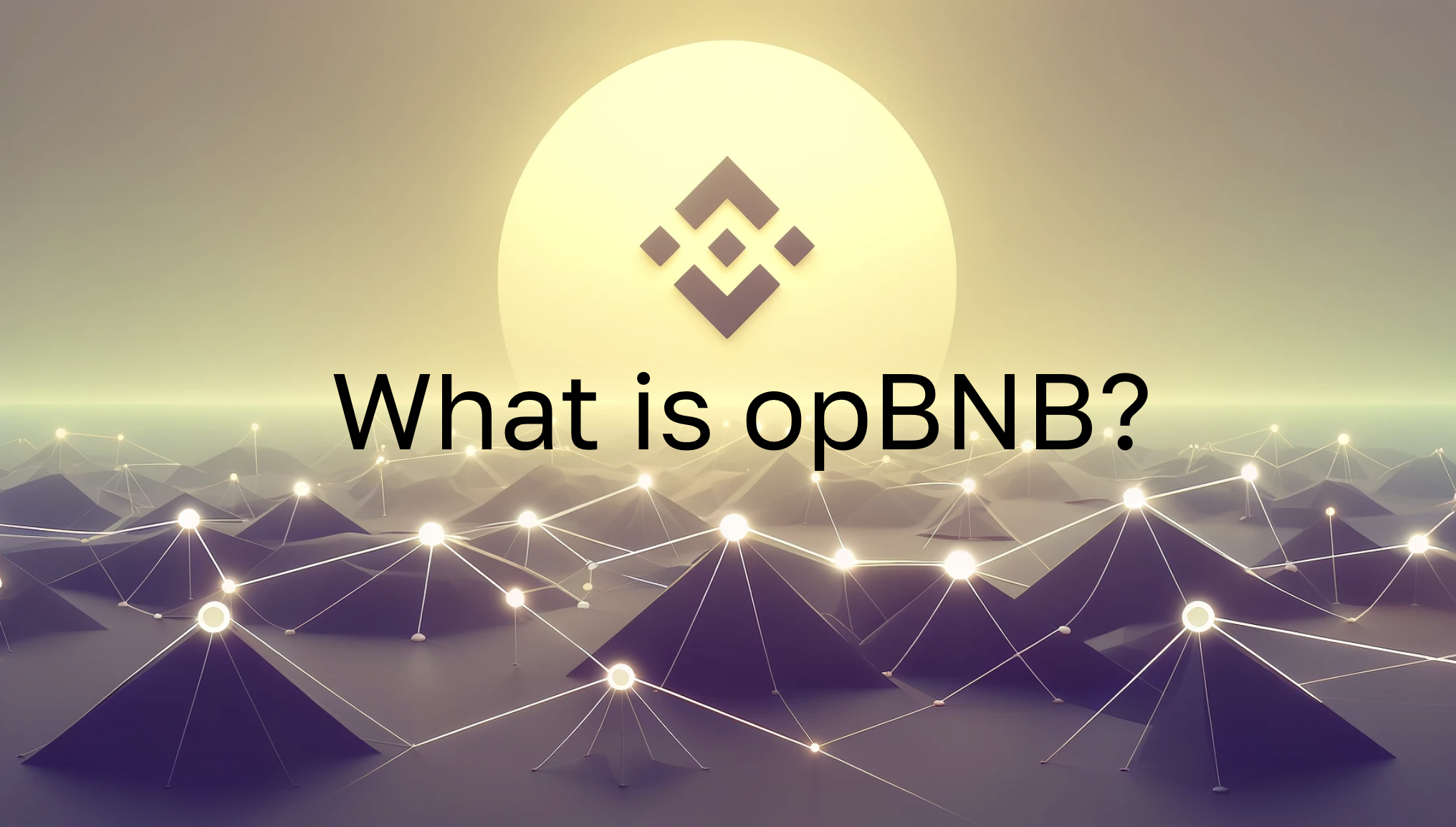
So, how does opBNB work?
Users interact with opBNB by depositing assets from BSC and using contracts and applications on the L2 network. Sequencers aggregate transactions, compute state transitions and submit them to the roll-up contract on BSC. Provers generate cryptographic proofs that ensure the validity of state transitions. Verifiers then check the proofs to verify that the opBNB state is correct.
All in all, opBNB enables users to deposit and withdraw funds, use dapps and smart contracts, and access network data with high throughput and low transaction fees. As such, by leveraging opBNB, it’s possible to scale beyond the limitations of BSC, providing an improved experience for end users.
Benefits & Features of opBNB
Now, with an overview of what opBNB is, let’s explore some benefits and features of this L2 network:
- Optimistic Rollup Technology: OpBNB uses optimistic rollup technology, bundling multiple off-chain transactions into batches before submitting them to the main chain. This reduces the computational load on BSC, resulting in faster and cheaper transactions.
- High Throughput: OpBNB achieves higher throughput than BSC, supporting up to 5,000 transactions per second (TPS) as of 2024.
- Low Fees: By processing transactions off-chain and settling only the final state on BSC, opBNB offers low fees, making it ideal for micro-transactions and DeFi applications.
- Improved User Experience: With low fees and fast transaction confirmations, opBNB enhances the overall user experience of Web3, making dapp interactions more affordable and encouraging mass adoption.
- Robust Security: Despite processing transactions off-chain, opBNB maintains high security by relying on the underlying BSC network.
What are opBNB RPC Nodes?
OpBNB RPC nodes are computers, servers, and other similar devices that participate in the L2 network in some capacity. For instance, they are responsible for processing transactions, storing data, propagating blocks, and much more. The opBNB network consists of many nodes that together contribute to the blockchain’s security and integrity.

There are three main types of opBNB nodes:
- Fast Node: Suitable for most dapps, fast nodes contain only the current state of the opBNB network. They are ideal for querying the current state and processing transactions.
- Full Node: Full nodes store recent trie data from the past 128 blocks, providing enhanced security and the ability to query historical data from specific blocks.
- Archive Node: Archive nodes store the complete historical trie data of the blockchain, making them essential for applications that require full chain history, such as block explorers.
What are opBNB RPC Nodes Used For?
OpBNB RPC nodes have many use cases. Here are three core examples:
- Transaction Processing: OpBNB RPC nodes are used to process transactions, making them pivotal for the network’s everyday operations.
- Data Storage: Nodes store smart contract and transaction data, which is crucial for the network’s integrity.
- Web3 Development: OpBNB RPC nodes act as gateways to the network, allowing users to seamlessly interact with the chain. Consequently, they are essential for building dapps, as RPC nodes allow developers to both read and write blockchain data from opBNB.
This gives you an overview of opBNB RPC nodes and their uses. In the next section, we’ll introduce Moralis—the industry’s leading node provider!
Introducing Moralis – Easiest Way to Run opBNB RPC Nodes
The best and easiest way to run opBNB RPC nodes is to use Moralis—the industry’s premier node provider. With our intuitive point-and-click interface, you can effortlessly run nodes for 30+ chains. As such, setting up an opBNB node has never been easier than when using Moralis!
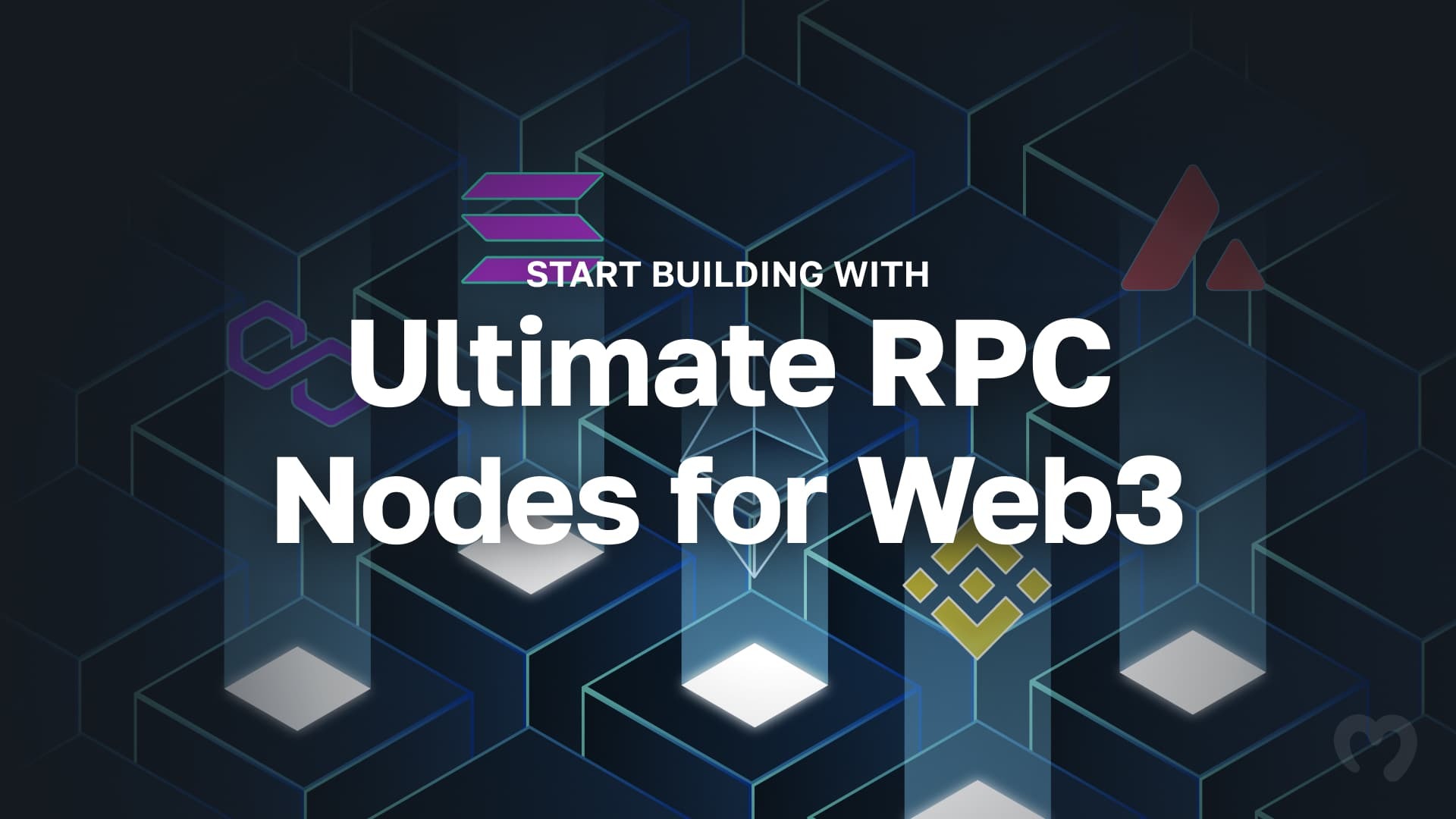
But what makes our nodes the best in Web3?
- Speed: Our nodes feature response times from 70 ms, setting the industry benchmark for speed. With Moralis, you get the data you need without delay.
- Reliability: Moralis’ nodes are built to the highest reliability standards, featuring 99.9% uptime.
- Security: Don’t put your data at risk. Choose Moralis—the industry’s only SOC 2 Type 2 certified node provider—as your trusted partner.
Now, let’s show you how to set up an opBNB RPC node in three straightforward steps!
Tutorial: How to Set Up opBNB RPC Nodes in 3 Steps
Now that you’re familiar with Moralis’ node service, we’ll show you how to set up an opBNB node in three simple steps:
- Sign Up with Moralis
- Configure Your opBNB Node
- Integrate Your opBNB Node
Step 1: Sign Up with Moralis
The first thing you’ll need to set up an opBNB node is a Moralis account. As such, if you haven’t already, make sure to sign up by clicking the ”Start for Free” button at the top right before moving on:
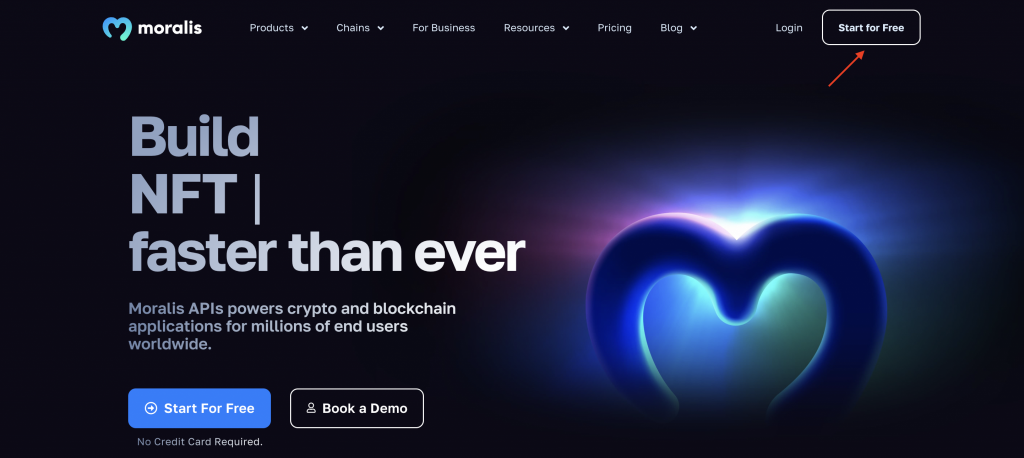
Step 2: Configure Your opBNB Node
With an account at your disposal, go ahead and log in, navigate to the ”Nodes” tab, and hit ”+ Create Node”:

Next, choose ”OpBNB”, followed by ”Mainnet”, and click ”Create Node”:

Step 3: Integrate Your opBNB Node
Copy and integrate one of your opBNB node URLs into your project:

That’s it; setting up opBNB RPC nodes doesn’t have to be more challenging than this when using Moralis!
How to Call Your opBNB RPC Nodes
Now that you know how to set up opBNB RPC nodes with Moralis, we’ll show you how to use them in practice. More specifically, we’ll demonstrate how to fetch the native balance of an opBNB wallet using Ethers.js.
Before you start the tutorial, ensure you have the following ready:
Now, follow the five steps below:
- Step 1: Open your preferred IDE, create a folder, open a new terminal, and initialize a project with the command below:
npm init
- Step 2: Install Ethers.js with the following terminal command:
npm install ethers
- Step 3: Add
"type": "module"to your “package.json” file:
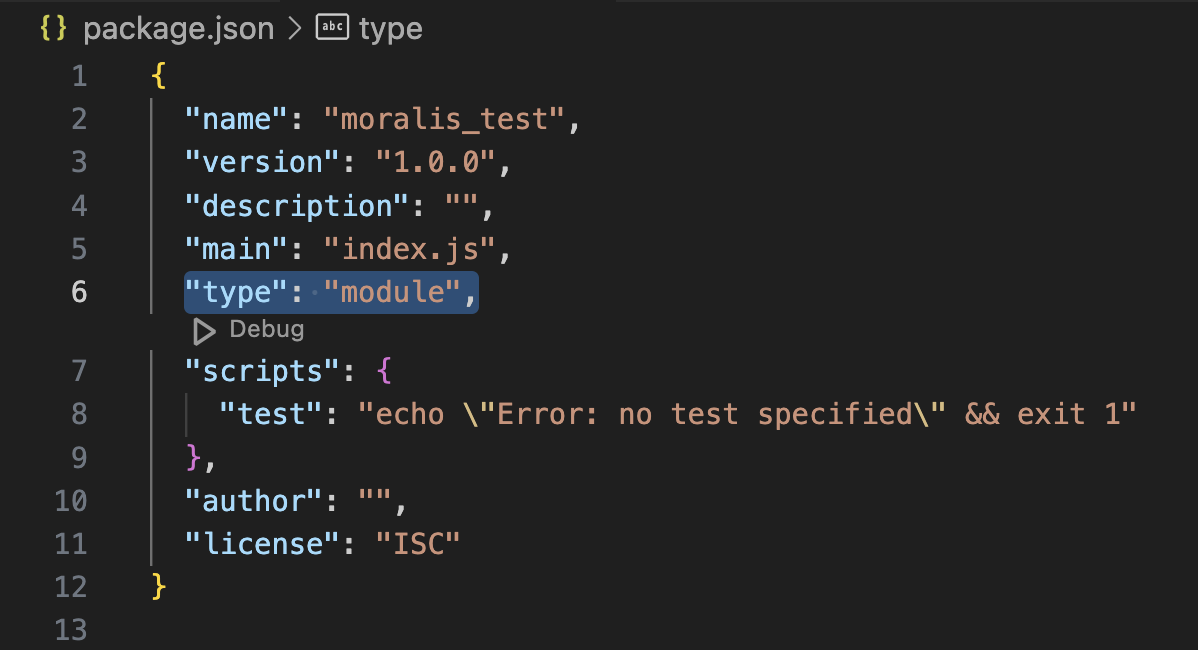
- Step 4: Create a new “index.js” file and add the following code:
import { ethers } from "ethers"; const provider = new ethers.providers.JsonRpcProvider("YOUR_NODE_URL"); const address = "0xB661E5cA9f0079ac4B971489D72eCf67A7550cE2"; const balance = await provider.getBalance(address); console.log("Balance: ", ethers.utils.formatEther(balance)); Configure the code by replacing YOUR_NODE_URL with one of your opBNB node URLs and change the address parameter to fit your query:

- Step 5: Run the script with this terminal command:
node index.js
In return, you’ll get the native balance of the specified address. Here’s an example of what it might look like:
Balance: 0.009918153154050728
Congratulations! You now know how to call your opBNB RPC nodes!
For a more in-depth tutorial with additional examples of the types of data you can fetch with your nodes, please watch the Moralis YouTube video below:
The Limitations of RPC Nodes
While it’s possible to use RPC nodes to interact with blockchain networks, it might not always be the ideal choice, especially when querying on-chain data. But why is that? Let’s explore three limitations of RPC nodes:
- Complex to Query: Nodes are challenging to query. Simple questions like “What ERC-20 tokens does wallet X hold?” require multiple requests and manual data compilation.
- Single-Chain: RPC nodes support only one blockchain at a time. This limitation complicates the development of cross-chain dapps, requiring a separate node for each chain.
- Raw Data: Nodes deliver raw blockchain data. Before you can use it, you must index, interpret, decode, and format the information, which is time-consuming and resource-intensive.

So, what is the alternative?
To avoid these issues, your best choice is to leverage an API provider like Moralis. With our intuitive interfaces, you can query indexed and decoded data straight out of the box with just a few lines of code. Want to learn more? Join us in the next section as we dive deeper into Moralis!
Beyond opBNB RPC Nodes – Exploring Moralis’ Web3 APIs
Moralis is Web3’s leading API provider, and in our toolkit, you’ll find over ten APIs tailored for various use cases. Some prominent examples include the Wallet API, Token API, Streams API, and many more. As such, when leveraging Moralis, it’s possible to build everything from cryptocurrency wallets to token explorers without breaking a sweat!

So, what are the benefits of leveraging Moralis’ Web3 APIs?
- Comprehensive: Our APIs are outcome-oriented and designed to minimize the calls needed to develop powerful platforms. This optimizes your workflow, allowing you to build dapps faster and more efficiently.
- Cross-Chain: Moralis’ APIs are truly cross-chain compatible, providing full feature parity across 30+ chains. This allows you to streamline your developer experience by using the same APIs for every network.
- Secure: Moralis is the industry’s only SOC 2 Type 2 certified infrastructure provider. So, if data security and reliability are crucial for you, consider building your dapps with our premier Web3 APIs.
To explore all our interfaces, visit the official Web3 API page, where you’ll find 10+ use case-specific APIs, including the Wallet API, Token API, Streams API, and more!
Summary: How to Set Up an opBNB Node for Free
Setting up and maintaining opBNB RPC nodes from scratch requires managing a complex infrastructure with substantial bandwidth, storage capacity, and computational power. As such, running opBNB RPC nodes on your own is both time-consuming and resource-intensive. Fortunately, you can now avoid these complexities with a premier node provider like Moralis!
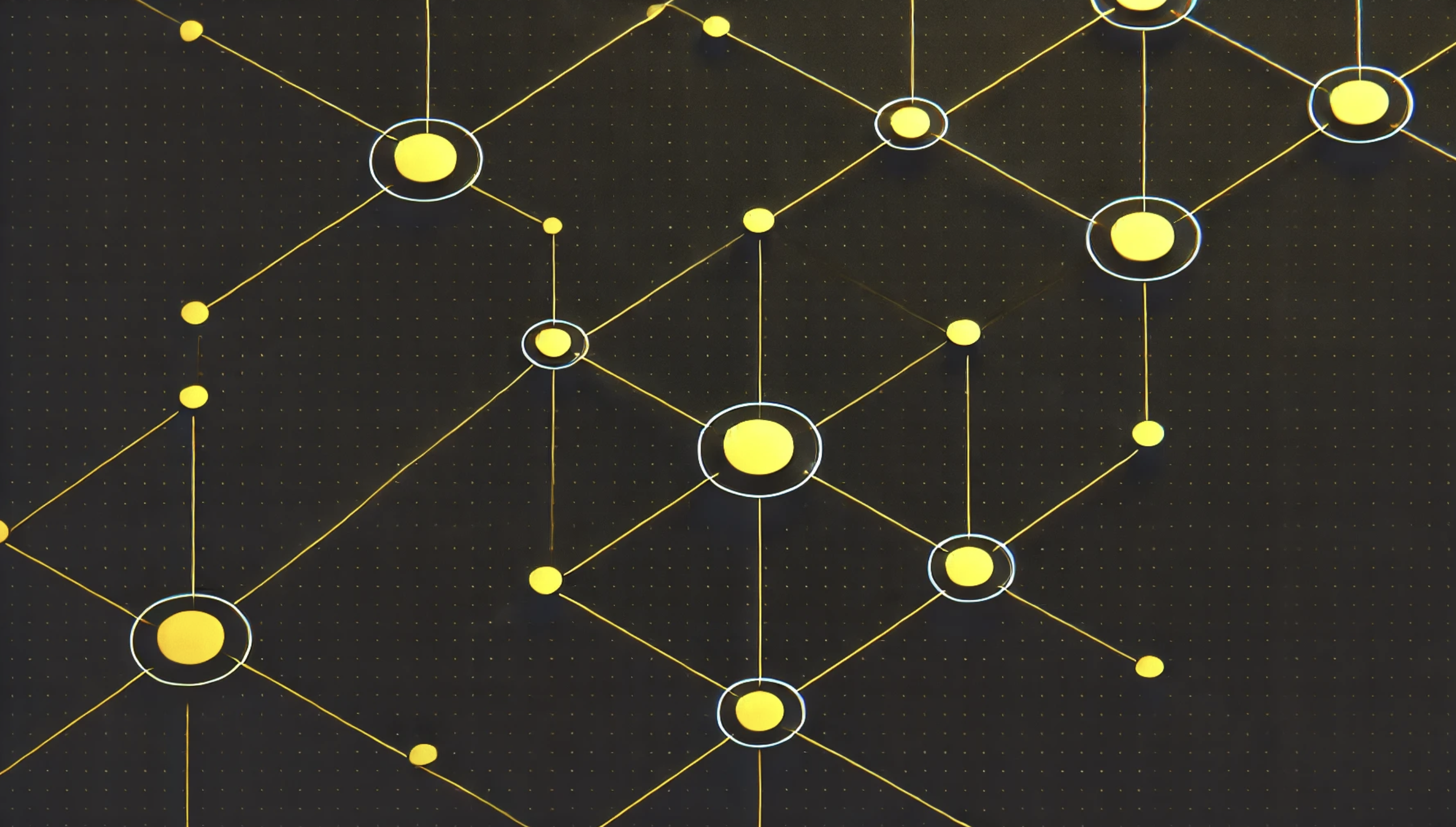
With Moralis, we manage the underlying infrastructure required to run blockchain nodes. In return, you can use our intuitive point-and-click interface to run nodes for 30+ chains. As such, it has never been easier to set up an opBNB node for free.
But what makes our node service the best in Web3?
- Speed: Our nodes set the benchmark for speed, featuring response times from 70 ms.
- Reliability: Experience unparalleled reliability with 99.9% uptime.
- Security: Keep your data secure with Moralis—the industry’s only SOC 2 Type 2 certified node provider.
If you liked this opBNB RPC nodes tutorial, consider checking out similar articles on our blog. Here are a few prominent examples:
Also, if you wish to run your own RPC nodes, don’t forget to sign up with Moralis. You can create an account free of charge and gain immediate access to our premier node service!
Read More: moralis.io

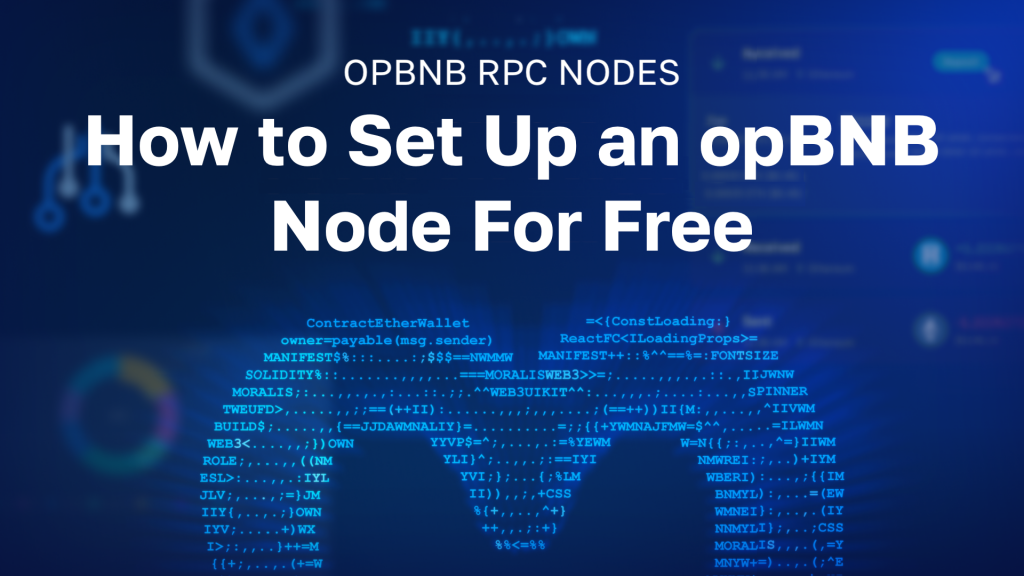







 Bitcoin
Bitcoin  Ethereum
Ethereum  Tether
Tether  XRP
XRP  Solana
Solana  USDC
USDC  Dogecoin
Dogecoin  TRON
TRON  Cardano
Cardano  Lido Staked Ether
Lido Staked Ether  Wrapped Bitcoin
Wrapped Bitcoin  Hyperliquid
Hyperliquid  Sui
Sui  Wrapped stETH
Wrapped stETH  Chainlink
Chainlink  Avalanche
Avalanche  Stellar
Stellar  Bitcoin Cash
Bitcoin Cash  Toncoin
Toncoin  LEO Token
LEO Token  Shiba Inu
Shiba Inu  Hedera
Hedera  USDS
USDS  WETH
WETH  Litecoin
Litecoin  Wrapped eETH
Wrapped eETH  Monero
Monero  Polkadot
Polkadot  Binance Bridged USDT (BNB Smart Chain)
Binance Bridged USDT (BNB Smart Chain)  Ethena USDe
Ethena USDe  Bitget Token
Bitget Token  Pepe
Pepe  Pi Network
Pi Network  Coinbase Wrapped BTC
Coinbase Wrapped BTC  WhiteBIT Coin
WhiteBIT Coin  Aave
Aave  Uniswap
Uniswap  Bittensor
Bittensor  Dai
Dai  Ethena Staked USDe
Ethena Staked USDe  Aptos
Aptos  Cronos
Cronos  NEAR Protocol
NEAR Protocol  OKB
OKB  Jito Staked SOL
Jito Staked SOL  BlackRock USD Institutional Digital Liquidity Fund
BlackRock USD Institutional Digital Liquidity Fund  Internet Computer
Internet Computer  Ondo
Ondo  Ethereum Classic
Ethereum Classic